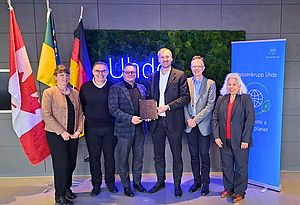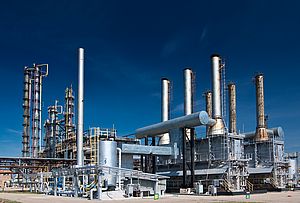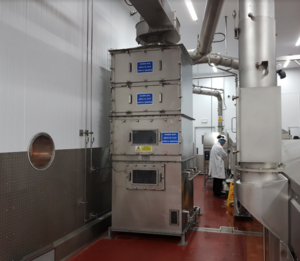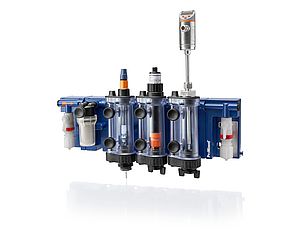The Institution of Chemical Engineers (IChemE) is predicting that desalination plants could become more common on UK coastlines and estuaries by 2050 as population growth and the effects of climate change places increasing pressure on water supplies.
Worldwide, there are around 13,000 desalination plants in operation or under construction in 150 countries. In June 2010, the UK opened its first municipal desalination plant in Beckton, East London, which is operated by Thames Water and capable of supplying 150 million litres of water per day – enough to supply around 400,000 households.
By 2050, it is predicted that the number of desalination plants across the world will more than double with a further 18,500 desalination plants becoming operational. In the UK, at least four municipal desalination plants and up to 800 smaller units could be providing water to UK households and industry1.
Conventional thermal desalination plants, which often use fossil fuels, use energy-intensive evaporation and condensation processes to produce fresh water. Membrane systems, most commonly Reverse Osmosis (RO), typically use high pressure pumps to force water through a semi-permeable membrane, leaving the salt behind.
The energy needed to run RO membrane systems is proportional to the salinity of the water. Low salinity brackish groundwater or estuarine waters treated by RO membrane systems therefore require just a fraction of the energy that thermal desalination processes would need. However, membrane systems are prone to fouling, and more chemicals are required to maintain them.
Even with the latest RO membranes, the pumping energy and chemical costs make desalination plants much more expensive to run than comparable non-saline water treatment works. As a result, Thames Water only operates its desalination plant during periods of drought.
However, changes in technology, combined with major population growth and unpredictable weather patterns caused by climate change are likely to make desalination more viable in the UK. Martin Currie, a member of IChemE’s Water Special Interest Group and independent water quality and treatment consultant with Aqueum, said:
“While improvements are continuously being made to RO membranes making desalination more chemical and energy efficient, some of the most exciting developments in desalination are with breakthrough technologies. Researchers are currently working to scale-up biomimetic membrane processes employing aquaporin proteins – found in our kidneys – that let water through much more efficiently than conventional membranes.
“Also, UK universities and companies are at the forefront of Forward Osmosis (FO) – a technology now in commercial operation that uses osmosis to suck water through the membrane rather than just pumps to push it. Both technologies promise huge energy savings and FO plants are already seeing massive reductions in the amount of chemicals required to maintain the membranes”.
Currie continued: “UK researchers and technologists are certainly punching above their weight – given that the UK only has one municipal desalination plant to date. Globally, water scarcity is such a critical issue, that sustainable desalination is one of the most important areas in which chemical engineers are safeguarding our futures.
“In terms of climate change, desalination is both part of the problem and the solution. Climate change leads to water scarcity, which is partially resolved by desalination. However the energy required for desalination can result in significant greenhouse gas production, resulting in further climate change. Any efficiency savings that chemical engineers can bring to desalination are therefore magnified.
“Fortunately in the case of desalination energy, economic and environmental drivers are in alignment. Energy savings will be implemented as they also lower the operational cost of desalination”.
Andy Furlong, IChemE’s director of policy and communication, whose members play a leading role in solving UK water supply challenges and research into new technologies, said:
“Some estimates suggest that the UK’s population will increase by nearly a quarter (24%) to 77 million by 20502 making it the most populous country in Europe.
“In addition, the UK Environment Agency has already indicated that we need to plan for more extreme weather conditions in the future as our climate changes. Droughts are likely to become a more regular occurrence and have a major impact on industry, agriculture and the general population. In 2012 more than 20 million people were affected by the unusual weather patterns in the UK.
“The situation is likely to become more acute as additional demands are placed on water supply. Although desalination has its critics in the UK, it is one of the potential solutions and more common on mainland Europe where around ten per cent of the world’s desalination plants are located.
“Consequently, IChemE’s members will be publishing a white paper in 2014 which will assess all the options for a secure and safe water supply in the UK and internationally”.
The role of chemical engineers in the water sector is explored in IChemE’s latest technical strategy, Chemical Engineering Matters. The strategy also includes actions chemical engineers are taking on other global challenges including food, energy and health.
Water challenges in the UK
make desalination plants more likely
- September 13, 2013
- 102 views
























































